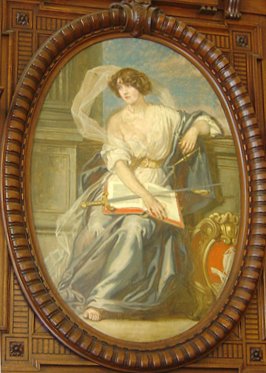Le projet de loi sur le « trou analogique » imposerait une loi secrète
A contribution to the first edition of the Carnival of Blog Translation. Anglophones can read the original post, which is translated here: Analog Hole Bill Would Impose a Secret Law, on Ed Felten’s post Freedom to Tinker. The choice has been influenced by the DMCA-like bill currently under discussion in France.
Ce billet est une contribution à la première édition du « Carnaval de la traduction » initié par Liz Henry. J’ai choisi de transposer dans un français j’espère à peu près compréhensible un billet du professeur Ed Felten de l’université de Princeton aux États-Unis. Son blog, Freedom to Tinker (cela donne « La liberté de bidouiller ») se tient dans les interstices entre le droit et l’informatique.
Alors qu’en France, l’Assemblée nationale considère une loi qui, bien que transposant une directive européenne, reprend plusieurs dispositions du DMCA américain, les États-Unis sont en train d’aller plus loin. Le Congrès débat actuellement d’un projet de loi qui, au-delà de la protection des dispositifs GDM (également appelés DCU ou DRM), vise à boucher ce qu’ils appellent le « trou analogique » (« analog hole ») : la possibilité de copier un enregistrement numérique potentiellement protégé en passant par les techniques analogiques. Voici ce qu’Ed Felten a découvert à ce sujet…
Si vous avez lu ce blog récemment, vous savez que je ne raffole pas de la loi Sensenbrenner/Coyners#[1] sur le « trou analogique ». Cette loi exigerait que tous les appareils vidéo analogiques fussent équipés de deux dispositifs techniques, appelés CGMS-A et VEIL#[2]. CGMS-A est raisonnablement bien connu, mais le système VEIL de protection des contenus est relativement récent. Je voulais en savoir plus.
J’ai donc adressé un e-mail à la société qui vend VEIL et leur ai demandé s’ils voulaient bien me faire parvenir une copie de ses spécifications techniques. Je me suis dit que j’allais bien les obtenir. Après tout, la loi rendrait les spécifications de VEIL obligatoires — les spécifications feraient effectivement partie de la loi. Ils n’allaient certainement pas proposer de voter une loi secrète. Ils n’allaient certainement pas dire que les citoyens ne fussent pas autorisés de connaître le contenu d’une loi que le Congrès est en train de discuter.
Après quelques allers-retours, la société eut l’amabilité de m’expliquer que je pouvais bel et bien recevoir les spécifications sous condition de signer, d’abord, leur contrat de licence. Ce contrat m’obligerait à : a) leur payer la somme de 10.000 dollars et b) promettre de ne parler à quiconque du contenu des spécifications. En d’autres termes, je peux connaître le contenu de la loi dont le Congrès est en train de débattre, mais seulement en payant 10.000 dollars à une société privée, et seulement si je promets de ne dire à personne ce qui est dans la loi, ni de participer à un débat publique là-dessus.
Pire encore, le contrat de licence ne couvre que la moitié du dispositif : le décodeur VEIL, qui détecte les signaux VEIL. Il n’y à pas moyen pour vous et moi d’être avertis du fonctionnement de l’encodeur qui ajoute les signaux VEIL à une vidéo.
Connaître les détails de ce dispositif est important pour pouvoir évaluer ce projet de loi. De combien cette loi, si elle entrait en effet, augmenterait-elle le prix d’une télé ? Dans quelle mesure gênerait-elle le développement futur de technologies nouvelles dans le domaine de la télévision ? Quelle est la probabilité que le dispositif empêcherait de faire des copies autorisés ? Dans quelle mesure le dispositif s’adapterait-il aux développements de l’avenir ? Toutes ces questions pèsent dans le débat sur cette loi. Et nous n’en pouvons répondre à aucune si la partie technique de la loi est secrète.
Ce qui nous amène à la question la plus intéressante de toutes : Les membres du Congrès eux-mêmes et leur assistants, sont-ils autorisés, eux, à voir les spécifications techniques et d’en parler ouvertement ? Sont-ils autorisés à demander conseil à des experts ? Ou bien, le contenu complet de ce projet de loi, est-il tenu secret même vis-à-vis des législateurs qui en débattent ?
(P.S.: Je suis autorisée à traduire ce billet car Ed Felten l’a mis à disposition sous contrat de licence Creative Commons. Merci.)
NDLT :
[1]: Noms des rapporteurs. [2]: L’acronyme VEIL signifie « voile ».
Related posts: Carnival of Blog Translation, Sappho II, Minimalist Kitkat, Absence / Presence, and a new poem, Carnival of Blog Translation VI., Do you want some Wood flower picks sea cucumber hoof with your Cowboy leg?, Locali(s|z)ation and internationali(s|z)ation
Technorati (tags): blogging, blog translation, copyright, language, langue, traduction, translation


